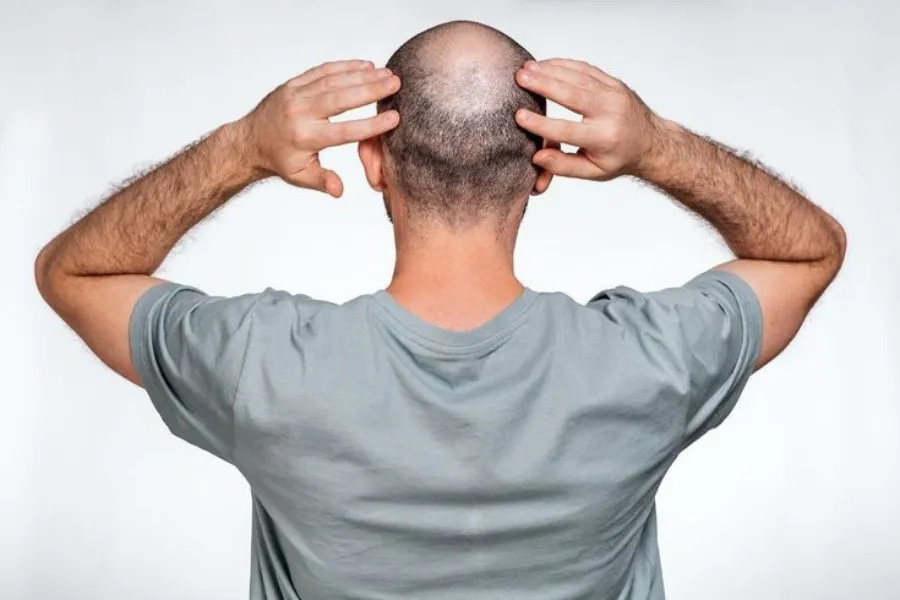Struggling with sudden or progressive hair loss? Medications for Alopecia Areata are clinically approved treatments that help reduce hair shedding, promote regrowth, and manage autoimmune-related hair loss conditions.
Whether you’re dealing with alopecia areata or androgenetic alopecia, these medications offer
targeted relief by addressing underlying causes.

Backed by dermatologists and supported by research, alopecia drugs provide trusted solutions to restore hair health and improve confidence.
Discover how the right drug therapy can support your journey to stronger, fuller hair.
Medications for Alopecia Areata
Alopecia areata is an autoimmune disorder where the body’s immune system mistakenly attacks hair follicles, leading to hair loss. It can affect the scalp, eyebrows, beard, and other body areas. While the condition is unpredictable, several medications are used to manage symptoms and encourage regrowth.
Commonly Used Medications for Alopecia
1. Topical Corticosteroids
These are often prescribed as creams or ointments to reduce inflammation and suppress the immune response.
- Common creams: Clobetasol propionate, Betamethasone
- Application: Usually applied once or twice daily to affected areas
- Considerations: Safe under medical supervision; long-term use may cause skin thinning
2. Minoxidil (Topical Solution)
- Available in 2% and 5% strengths
- Stimulates hair follicles and prolongs the growth phase
- Often used in combination with other therapies for enhanced effect
3. Topical Immunotherapy
- Uses agents like diphencyprone (DPCP)
- Triggers an allergic reaction to alter the immune system’s behavior
- Typically done under close clinical supervision
4. Oral Medications (JAK Inhibitors)
- Tofacitinib and Baricitinib are emerging as effective options
- These medications inhibit the Janus kinase pathway involved in the autoimmune response
- Available by prescription and used off-label under expert monitoring
5. Antibiotics and Anti-Inflammatories
- In some cases, antibiotics like doxycycline are prescribed to manage inflammation, although they are not primary treatments
- Used when bacterial involvement or inflammation is suspected

Benefits and Considerations
- Improved Hair Regrowth: Some patients respond well to topical or oral medications within 3–6 months
- Non-Surgical Options: Medications can delay or reduce the need for surgical interventions
- Variable Response: Outcomes depend on severity, duration, and patient-specific factors
Medical Supervision at Dr. Rana Irfan’s Clinic
At our Islamabad-based clinic, every alopecia treatment plan is personalized:
- Dr. Rana Irfan holds certifications from ABHRS and is a member of ISHRS
- Treatments follow global standards, with diagnostic assessments, scalp analysis, and tailored prescriptions
- In cases of severe alopecia, FUE hair restoration or PRP therapy may also be considered
Who Is a Candidate for Medication-Based Treatment?
- Patients in the early stages of alopecia areata
- Those preferring non-surgical or minimally invasive approaches
- Individuals with patchy hair loss or diffuse thinning

Treatment for Local and International Patients
We welcome patients from Islamabad and beyond. For international clients:
- Remote consultations can be arranged
- Treatment plans are provided with flexible scheduling
- Our facility is experienced in handling medical tourists seeking alopecia care in Pakistan
Links Suggestions:
Frequently Asked Questions (FAQs)
What is the most effective cream for alopecia areata?
Corticosteroid creams like clobetasol are commonly prescribed to reduce immune system activity in localized areas.
Can alopecia be treated with pills?
Yes, oral medications like JAK inhibitors (e.g., tofacitinib) have shown promise, especially for moderate to severe cases. These must be prescribed and monitored by a qualified medical professional.
Is there an antibiotic for alopecia areata?
Antibiotics are not typically used as first-line treatment, but may be considered if inflammation or infection is present.
Can hair grow back after alopecia areata?
Yes, many patients experience regrowth with proper treatment, although results vary based on the individual’s response and disease severity.
Does Dr. Rana Irfan offer alopecia treatment in Islamabad?
Yes. Dr. Irfan offers comprehensive treatment plans that may include medications, PRP therapy, and surgical solutions like FUE, depending on each patient’s condition.
